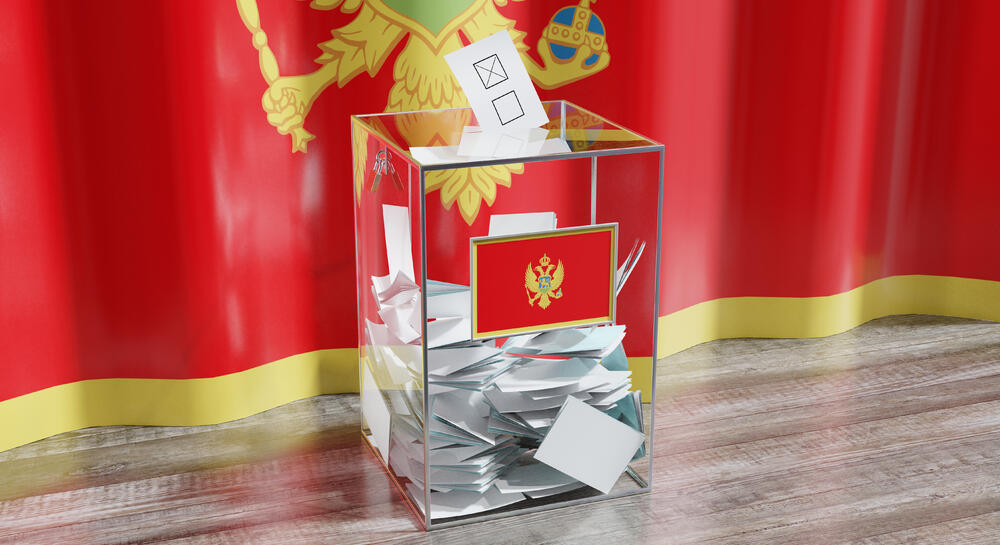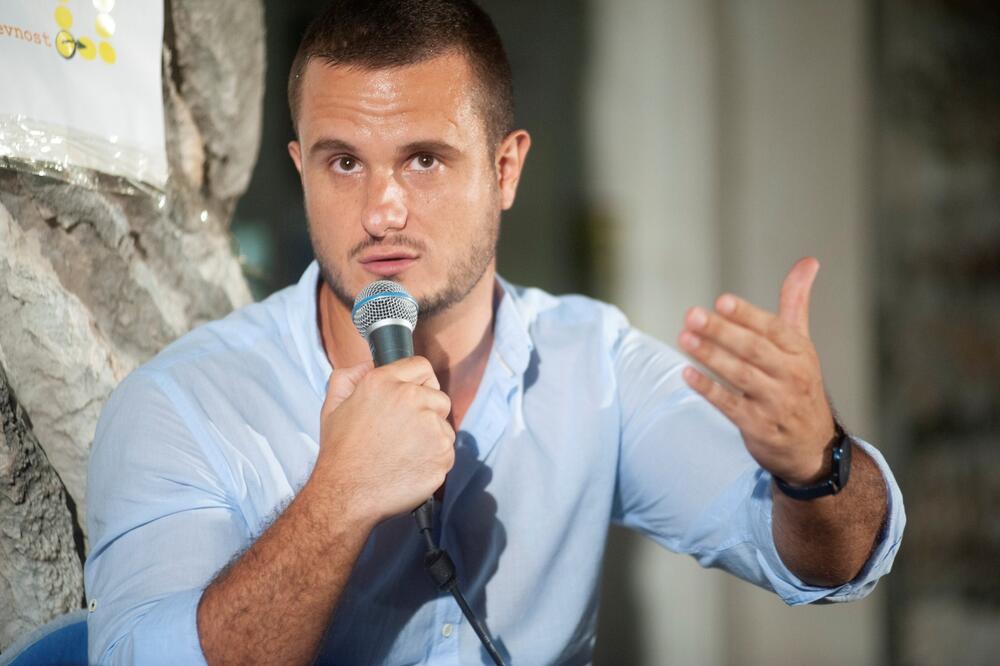The upcoming presidential elections can only be compared to those of 1997, since they were the beginning of the "new" Democratic Party of Socialists (DPS), while this could be its end.
This was assessed by the professor of political science at the Humanities Studies at the University of Donja Gorica (UDG) in an interview with "Vijesta". Predrag Zenović.
In the 1997 elections, the current head of state and DPS Milo Djukanovic he defeated his party colleague at the time Momir Bulatović, and took control of the party. After that, Bulatović formed the Socialist People's Party (SNP).
Asked if he thinks that Đukanović is closer to running again in the presidential elections, Zenović replies that the absence of his candidacy would mean an implicit acceptance of defeat.
Speaking about the candidacy of the leader of the Europe Now Movement (PES) Milojko Spajić, states that PES is looking to ride the wave of massive support growth and capitalize on that success.
"The presidential elections are both a mutual comparison, but also for the first time a more certain chance for the challenger of the DPS candidate to win those elections. The risk of a bad result is a high stake, but the stake is also the biggest possible premium for the party of the winning candidate, which, in addition to the president, also implies a greater probability for the future president. I believe that, due to all of the above, the first round is a bigger challenge for the PES candidate than the second," explains Zenović.
What is the significance of the upcoming presidential elections, and can they be the beginning of a new political era in Montenegro?
These elections can be decisive for the fate of a political party, the democracy of a country and the future of a European society. The role of the president in the constitutional system of Montenegro is limited, but still crucial for domestic and foreign policy. Montenegro is a parliamentary political system with a directly elected president, which gives him special legitimacy, but who, as the holder of foreign executive power, has procedural and ceremonial powers. The framer of the Constitution, probably rightly, did not opt for semi-presidentialism like we have in Serbia or Croatia. Recently, we have witnessed the transformation of the political system, the need to further limit the powers of the president, and we will see what kind of constitutional and legal epilogue this process will have.
From a constitutional point of view, the president has the role of a pivot, a key point, a connective tissue of the political system, a symbol of unity. In the spirit of what is Aristotel in a mixed type of government intended for the monarch, and the American federalists presented in the role of a strong president - unifying power embodied in one man. The new president of Montenegro should be exactly that - a point of unification of the polarized political field and a catalyst for democratic and European integration processes that have been called into question by partitocracy and cohabitation.

What kind of election race do the announcements that the parliamentary majority and non-parliamentary parties close to them will have more candidates foreshadow? Does this decrease or increase the chances of DPS candidates?
A higher turnout probably diminishes the DPS candidate's success in the first round. However, the excessive number of candidates on the side of the parliamentary majority has no predictable effect in the second round - the inexperience of potential candidates, ideological polarization and narrow party interests can be an obstacle to disempowering the DPS, which the parliamentary majority has as the only common goal.
What do you think is the reason why PES leader Spajić entered the race for president? In your opinion, what are his chances of being the new head of state? How would Spajić's good result affect his party's support?
The idea of PES is to take advantage of the wave of great growth in support and capitalize on that success, and the presidential election is the first and excellent opportunity for that. The success of the leaders of this movement depends to a large extent on the already mentioned factors that all DPS challengers have, and in addition, elections require an organized team and party infrastructure that can ultimately lead to victory. Unlike parliamentary elections, presidential elections are by majority - it is not enough to be good because the best wins.
In any case, a good result for Spajić means a wind at the movement's back in the parliamentary elections. The presidential elections are both a mutual comparison, but also for the first time a more certain chance for the challenger of the DPS candidate to win those elections. The risk of a bad result is a high stake, but the stake is also the biggest possible premium for the party of the winning candidate, which, in addition to the president, also implies a greater probability for the future president. I believe that, due to all of the above, the first round is a bigger challenge for the PES candidate than the second.
Do you expect Spajić to be supported by the Democrats and the Civic Movement (GP) URA, and that these three parties might unite?
As much as the ideological antagonism of the electorate is an obstacle in cooperation, the similarity to these parties is problematic because strategically it leads to unrecognizability, "drowning" and a possible drop in support. The Democrats could only give such support in a parity coalition arrangement, this was confirmed yesterday, and such a move could be expected at the GP URA as part of a broader political strategy.
What are the chances in the elections of one of the leaders of the Democratic Front (DF), Andrija Mandić, whose candidacy is announced by that alliance? Which parties could support him?
DF starts from the most loyal electorate, at a moment that is significantly more favorable for Mandić than in 2008. Support for Mandić will come from the traditional allies of this movement, and if he enters the second round, the wider support of the parliamentary majority will depend on the opposing candidates. The fact is that he is a skilled politician, that the DF leaders have significantly changed the discourse according to what is seen as the state and national interest, that there is a clear tendency to position themselves closer to the center and that they have given "blank" support to the DPS opponent. DF does not have good experience with non-party candidates, they are not a party or an alliance of one leader, that is why they can lose in this race. All this increases the likelihood of a good result, but for a potential victory, an intensive campaign with different rhetoric and political imagination is necessary, and that the civil society and part of the sovereignist bloc are mobilized to give support and trust to the leader of the New Serbian Democracy.
Are these elections a decisive battle for DPS and Đukanović? Do you think that Đukanović is closer to running for office again or to running for someone else this time?
Politically speaking, these elections can only be compared with the 1997 elections, since those elections were the beginning of the "new" DPS, while this one could represent its end. At the same time, it would be the end of an era of charismatic rule which, having exhausted all its advantages, became a ballast for democratic and emancipatory processes.
Nevertheless, the clear, largely contradictory stamp of Đukanović's government remains. First of all, a turn towards the values of Western civilization, uncharacteristic of our history, although the internal government often resembled Eastern despotisms. Montenegro was returned, but its citizens were stripped of their sovereignty. Human rights were won and improved for many, denied to others. Montenegro is a modern economy in which investments are welcome, but its citizens are impoverished and the working class humiliated. The state and institutions gained form, but lost their essence...
Not running means implicitly accepting defeat, and even though someone is running on behalf of DPS, the chances of winning are less than ever. If internal party reforms had taken place, these elections would have been a new chance for DPS.

What, in your opinion, is the reason why, according to everything, the opposition will not have a common candidate, and what did some of those parties call for? Would a supra-party candidate from DPS and the rest of the opposition have better chances in the elections than Đukanović?
The opposition may be ideologically united, but their strategic problems are not the same. In fact, they enter into the problem of the former opposition - the fight for the same electorate. At the same time, while DPS is fighting for survival, smaller parties have managed to profile themselves ideologically, impose other and not only national themes and consolidate the electorate.
I think that the success of someone who is not recognized as a point of division and the face of a long reign that captured the state and institutions would certainly be more certain. That's why a non-partisan person, with a civic orientation, recognized as a sovereignist but not antagonizing the Montenegrin political body, true to the heritage of European values in his public and political activity, would be a candidate who would strategically have a better chance in the second round.
If it is Đukanović, it will again be a national mobilization and campaign topics that polarize the political field, and it is unlikely that any other opposition candidate would have a chance for a solid result in such a framework.
Vukšić targets lithium supporters
The candidacy was also announced by the leader of the newly formed Democratic Christian Movement, Dejan Vukšić. Which electorate can he count on?
In question is the electorate mobilized by the "We don't give away the saints" movement, especially the one that entered the August XNUMXth political world exclusively for religious and broader values, not ideological or political motives. It is a rarity, but not an exception, that in modern democracies there is a shift from the sphere of secret, less visible state action to public.
The result of this candidate will determine the political future of this movement.
Bonus video:




